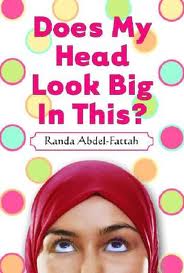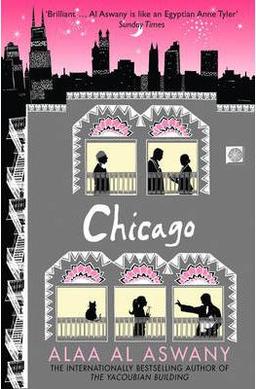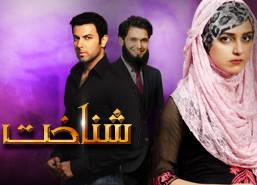
Lovers of the Arctic Circle, also known as The Lovers from the North Pole, is a 1998 Spanish romantic drama film written and directed by Julio Médem and starring Najwa Nimri and Fele Martínez. It won two Goya Awards in 1999.
Islamic feminism is a form of feminism concerned with the role of women in Islam. It aims for the full equality of all Muslims, regardless of gender, in public and private life. Islamic feminists advocate women's rights, gender equality, and social justice grounded in an Islamic framework. Although rooted in Islam, the movement's pioneers have also utilized secular, Western, or otherwise non-Muslim feminist discourses, and have recognized the role of Islamic feminism as part of an integrated global feminist movement.

Leila Fuad Aboulela is a fiction writer, essayist, and playwright of Sudanese origin based in Aberdeen, Scotland. She grew up in Khartoum, Sudan, and moved to Scotland in 1990 where she began her literary career. Until 2023, Aboulela has published six novels and several short stories, which have been translated into fifteen languages. Her most popular novels, Minaret (2005) and The Translator (1999) both feature the stories of Muslim women in the UK and were longlisted for the International Dublin Literary Award and Orange Prize. Aboulela’s works have been included in publications such as Harper's Magazine, Granta, The Washington Post and The Guardian. BBC Radio has adapted her work extensively and broadcast a number of her plays, including The Insider, The Mystic Life and the historical drama The Lion of Chechnya. The five-part radio serialization of her 1999 novel The Translator was short-listed for the Race In the Media Award (RIMA).

Does My Head Look Big In This? is author Randa Abdel-Fattah's first novel. It was released in Australia, by Pan MacMillan Australia, on 1 August 2005. It won the Australian Book Industry Award and Australian Book of The Year Award for older children.

The Translator is Sudanese writer Leila Aboulela's first novel, published in 1999. It is a story about a young Muslim Sudanese widow living in Scotland without her son, and her blooming relationship with a secular Scottish Middle Eastern scholar. The novel takes place both in Khartoum and Aberdeen and was inspired partially by Aboulela's own experience moving between these two cities. Aboulela refers to the novel and the main character Sammar as "a Muslim Jane Eyre". It focuses on issues of faith, cross-cultural romance, and the modernization of Sudan.

Skins is a British teen comedy drama television series that follows the lives of a group of teenagers in Bristol, South West England, through the two years of sixth form. Its controversial story-lines have explored issues like dysfunctional families, mental illness, adolescent sexuality, gender, substance abuse, death, and bullying.

Maxwell "Maxxie" Oliver is a fictional character in the British television series Skins. He is portrayed by actor Mitch Hewer.

Michelle Richardson is a fictional character in both the teen drama British series and U.S. remake of Skins. She is played by April Pearson in the British version and by Rachel Thevenard in the American version.

Anwar Kharral is a fictional character in the television series Skins portrayed by Dev Patel.

The Day the Leader was Killed is a novel written and published by Nobel Prize-winning author Naguib Mahfouz in 1983.
Osama bin Laden (1957–2011), a militant and founder of Al-Qaeda in 1988, believed Muslims should kill civilians and military personnel from the United States and allied countries until they withdrew support for Israel and withdrew military forces from Islamic countries. He was indicted in United States federal court for his involvement in the 1998 U.S. embassy bombings in Dar es Salaam Tanzania and Nairobi, Kenya, and was on the U.S. Federal Bureau of Investigation's Ten Most Wanted Fugitives list.
Aqsa "Axa" Parvez was the victim of a murder in Mississauga, Ontario, Canada. During the murder trial, Superior Court Justice Bruce Durno acknowledged the slaying as an honour killing, stating, that he found it "profoundly disturbing that a 16-year-old could be murdered by a father and brother for the purpose of saving family pride, for saving them from what they perceived as family embarrassment". Aqsa's brother, Waqas, had strangled her. Aqsa's death was reported internationally and sparked a debate about the status of women in Islam. The Toronto Star stated that the father's perception of himself being unable to influence his daughter's behavior was a major factor in the death, and that "Media in Toronto and around the world immediately reported and continues to report that Aqsa was killed because she refused to wear the hijab. But it was much more complicated than that."
Lubna Ahmed al-Hussein is a Sudanese Muslim, media worker and activist who came to international attention in July 2009, when she was prosecuted for wearing trousers. Her case became a cause célèbre, with organisations such as the Arabic Network for Human Rights Information and Amnesty International issuing statements in support.

Tricks is a young adult verse novel by Ellen Hopkins, released in August 2009. It tells the converging narratives of five troubled teenage protagonists. It is noted for its gritty realism in addressing issues of sexual activity and drug use for a young adult readership. It has been banned in some places due to its references to drug use, sexual themes and language.

Parsa is a Pakistani drama serial created by Tahira Wasti, and is based on the novel of the same name "Parsa", by Bushra Rahman. It explores the permissibility of inter-faith marriages, and cultural and societal issues regarding the topic. The drama depicts the story of Parsa, a Muslim girl who falls in love with David, a family friend and Christian.

Chicago is a novel by Egyptian author Alaa-Al-Aswany.

Shanakht (English Translation: Identity) is a Pakistani television social drama series that debuted on Hum TV on 5 August 2014. It is written and directed by Amna Nawaz Khan and produced by Momina Duraid. It is an A N K Production project. The show stars Maya Ali, Fahad Mirza and Noor Hassan Rizvi in pivotal roles. The show aired Tuesdays at 8:00 pm.

Jinn is a 2018 American drama film written and directed by Nijla Mu'min. Starring Zoe Renee and Simone Missick, it is a coming-of-age story about a Black Muslim teenage girl, Summer, who converts to Islam at her mother's behest. The film premiered at the 2018 South by Southwest Film Festival on March 11, 2018 and received Special Jury Recognition for Writing.
Yasmine Mohammed is a Canadian university instructor, human rights activist and author. Mohammed escaped from a forced, abusive marriage to Al-Qaeda operative Essam Marzouk and became an advocate for women's rights through her non-profit organization Free Hearts, Free Minds. She is a member of the Center for Inquiry Speaker's Bureau and on the board of advisory for the Brighter Brains Institute.














